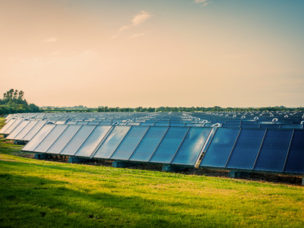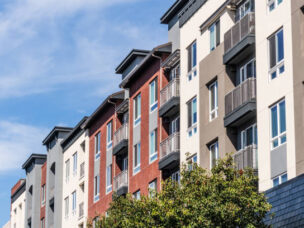Stay in the know
Subscribe to the Real Estate Blog and we’ll send you an email each time something new is posted.
Subscribe to the Real Estate Blog and we’ll send you an email each time something new is posted.
Blogs
Real Estate Blog
Rooftop Leasing – Landlords, Look Before You Leap!
This month’s edition of Shopping Centers Today, the magazine of the International Council of Shopping Centers, Inc., features an article with the teaser “Higher Income – Landlords are Harnessing their Rooftops to Boost Profits,” noting that building owners are maximizing rooftop use in a variety of ways – everything from roof decks, to cell towers and solar arrays, to theme parks and open space parks. While it’s tempting to seek to turn otherwise unproductive space into cash, building owners looking to make the leap should consider the following factors:
Whose Roof is it, Anyway?
If you’re a building owner, the obvious answer might be “mine – I can do whatever I want up there.” Not so fast. If a building has tenants, the care, custody and control of the roof during the lease term might not reside exclusively with the landlord. For example, consider a large shopping center with big box anchors at both ends, smaller in-line tenants in the middle, and a couple of restaurant outparcels. Anchors and restaurant pad tenants often own their own structures during the lease term, and therefore may have exclusive rights to the roof. The in-line tenants probably have lesser rights, but landlord’s dominion over the roof under each lease should be confirmed including provisions that may permit tenants to install antennas, or grant access to roof-mounted HVAC or other utilities. In some cases, responsibilities for roof maintenance are bifurcated, with the landlord taking on structure and replacement, and the tenant taking on routine maintenance.
Roof Condition and Maintenance Considerations. Building owners should consider making major repairs or replacements before any rooftop improvements are installed to avoid disruptions later. Many rooftop utility leases contain monetary penalties (usually tied to minimum power generation requirements in a power purchase agreement) against landlords who cause shutdowns. In addition, rooftop leases should make the tenant responsible for any roof damage caused by their equipment or personnel. Landlords should require tenant to hire landlord’s original roofing contractor to make any roof penetrations and perform all repairs so as not to void any roof warranty.
Taxes, CAM and Insurance Building owners should determine whether a separate tax assessment is available for the rooftop equipment, and should obligate the rooftop tenant to pay any impositions. If separate assessment is not available, the rooftop lease should allocate the taxes between landlord and tenant, since the value of the rooftop improvements compared to the building value can be significant. In a multi-tenant situation, the landlord must consider impacts on CAM charges. Many shopping center leases include provisions requiring landlords to use any income derived from the common areas to offset CAM costs, making the rooftop lease less of a money maker and more of an accounting hassle. Insurance issues should also be addressed – the rooftop tenant should insure its own equipment. Landlords should check with their insurance agents to be certain there will be no increase in premium for insuring the building resulting from having an installation on the roof, particularly one like a solar array that generates electricity. Lastly, building owners should also take care to avoid obligations to rebuild after a casualty solely to satisfy the requirements of a rooftop lease.
Security Issues. Many rooftop installations, such as cell phone antennas (and the small indoor equipment areas that often serve them), must be accessible to the roof tenant 24/7. How will that be accomplished? Is there dedicated access, or will maintenance workers be traipsing through my office building at all hours? Some tenants – such as financial services or government tenants — may have security concerns with such an arrangement.
End of Term Issues. Any rooftop lease should be clear as to who owns the rooftop installation at the end of the terms, and whose obligation it is to remove it. Removal and disposal of items such as solar panels may be expensive. Prudent landlords should try to negotiate security for removal costs (bonds, letters of credit, cash security or guaranties) to be sure the money to remove the equipment is available.
Hidden Traps for the Unwary. Rooftop leases may have unintended consequences. For example, some rooftop installations (such as solar panels) are funded through governmental grants. These grants may require both landlord and tenant to adhere to rules completely unrelated to the subject matter of the lease. In one instance, a governmental grant would have required the recipient to participate in affirmative action hiring programs – which could have affected the hiring practices of a major retailer.
Despite these hurdles, making use of a roof often just makes good sense. As with any new business endeavor, you should do your homework, review the leases, learn the details, and analyze how those details affect your particular situation.
“Higher Income – Landlords are Harnessing their Rooftops to Boost Profits,” reproduced by permission of Shopping Centers Today, a publication of the International Council of Shopping Centers.



